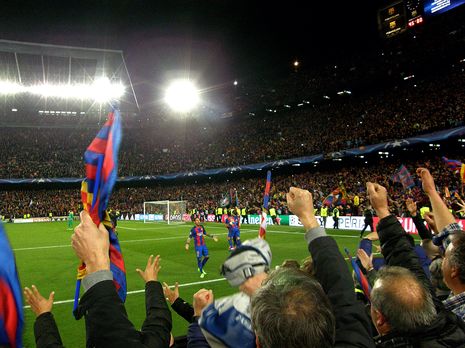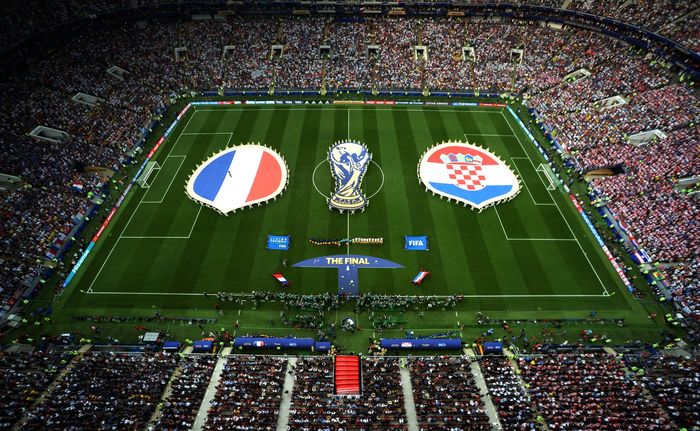Away goals scrapped: the new era of the Champions League
Following UEFA’s decision to change tournament rules in June, Jack Wadding discusses the adjustment after recently watching it in action

On the eve of the Champions League 2021-22 draw (25/08), Monaco played Shakhtar Donetsk for the last remaining group stage spot. Going into the game 1-0 up, Shakhtar had the advantage. But by half time in the second leg, Monaco turned it around by scoring two away goals. Three months ago, we might have witnessed a Monégasque bus being parked for the entirety of the second half, or a Ukrainian deflation in the face of the challenge of scoring two more goals. However, this year it’s different: away goals no longer count double.
Monaco could not rest on their laurels and Shakhtar did not implode. Instead, we were treated to an enthralling, end-to-end game of European football, with 34 total shots. While Monaco pushed to extend their lead, Shakhtar stole a single goal to take it to extra time, with the aggregate score reading 2-2. The additional 30 minutes gave them an opportunity to steal one more to make it 3-2 and, with it, the final Champions League spot. The Ukranians become the third team to benefit from the abolition of the away goals rule alongside CFR Cluj and Ludogorets Razgrad, who eliminated Borac Banja Luka and Olympiacos in the first and third qualifying rounds respectively.
“We like things how they were, how we feel they should be”
Change is always scary, especially in a world as conservative as football, but this doesn’t sound so bad, right? When UEFA announced the scrapping of the away goals rule back in June, the footballing community recoiled in shock. That’s because it has become close to the hearts of generations of fans. Introduced in 1965, the rule was intended to encourage away sides to play attacking football, as well as to balance the disadvantage of playing away from home. Since then, it has produced a wealth of memories - just ask a Spurs fan. Their 2018/19 run to the final of the Champions League was made possible purely through the concept of away goals, allowing them to squeeze past Manchester City and Ajax in the most dramatic of fashions.
But the main problem is that times have changed since the mid-1960s. As UEFA argued in their own announcement, travelling across Europe is a wholly different experience to what it once was half a century ago. “Better pitch quality and standardised pitch sizes, improved stadium infrastructure, higher security conditions, enhanced care of refereeing [… and] more comfortable travel conditions” were cited as just some of the factors for the decline in home advantage. So influential are these factors, in fact, that it can be strongly reflected in the statistics. In the mid-1970s, an away goal would literally be twice as hard to score: the average number of goals scored by a home team was 2.02, while away sides averaged only 0.95. By the 2009/10 season, this gap had reduced to 1.58 for home sides and risen to 1.15 for visitors.
“When you saw a home side scrambling for a goal in the last minutes of the second leg [...] you knew you were watching a Champions League game”
So yes, the rule change makes sense to a rational mind, yet we all know there’s nothing rational about football. We like things how they were, how we feel they should be. The away goals rule is one of those things that proves your value as a football fan: if you know it, you know what you’re talking about; if you don’t, you’re about to receive a lecture. But of the many changes to the format of football in recent months, such as a 48-team World Cup and play-off rounds to determine the last 16 of the Champions League, this is by far the least problematic.
As was clear in Ukraine, the removal of the away goals rule doesn’t eliminate the drama, it just alters it. Instead of away sides clinging on to aggregate draws in second legs, it’s likely that ties will be carried out on a more equal basis, with every goal weighted equally and all of the 180 minutes meaning the same to both sides. The change also means that we will see more extra time and penalties, something that has been a rarity over the last three decades of Champions League competition. In fact, since 1991, there have only ever been fourteen penalty shootouts in the competition, half of which have come in single-legged finals. There is the argument that 210-minute ties could add to the already controversial subject of fatigue, however it is undeniable that extra time and penalties provide faultless drama.
While the away goals rule is second nature to the most committed of fans, for those who are more relaxed in their viewing, or new to the sport, it serves as an unnecessary complication. It perhaps impedes their understanding and, therefore, enjoyment of the tie. As per usual in the modern game, the scrapping of the age-old rule will likely attract new customers to line the pockets of organisations calling the shots, such viewers unfortunate to never have witnessed the drama of the Champions League ties of years gone by.
This all may sound a little excessive but, truly, it is the end of an era. The Champions League knockout stages were defined by their doubly valuable away goals. When you saw a home side scrambling for a goal in the last minutes of the second leg, rather than taking a breather and waiting for extra time, you knew you were watching a Champions League game. In all honesty, Shakhtar’s extra-time victory was far more reminiscent of an international knockout game, not dissimilar to Ukraine’s round of 16 match against Sweden this summer. Granted, international tournaments are a joy to watch, but it’s just not the same as those European club nights. Ultimately, for better or for worse, the Champions League will never be the same again.
 News / Colleges charge different rents for the same Castle Street accommodation2 March 2026
News / Colleges charge different rents for the same Castle Street accommodation2 March 2026 News / King’s hosts open iftar for Ramadan3 March 2026
News / King’s hosts open iftar for Ramadan3 March 2026 Theatre / Lunatics and leisure centres 4 March 2026
Theatre / Lunatics and leisure centres 4 March 2026 News / Angela Merkel among Cambridge honorary degree nominees27 February 2026
News / Angela Merkel among Cambridge honorary degree nominees27 February 2026 News / Private school teacher who lied about Cambridge degree barred from teaching27 February 2026
News / Private school teacher who lied about Cambridge degree barred from teaching27 February 2026









